Kai Ken Dog Breed
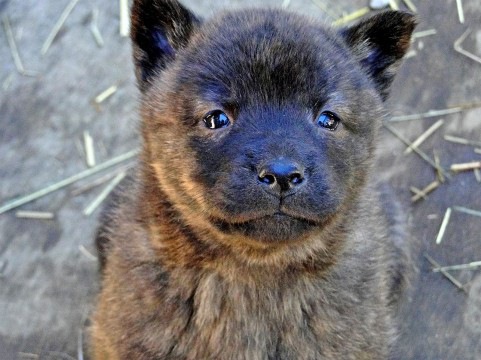
The Kai Ken is a breed that dates back to ancient Japan, boasting a reliable skeletal structure and muscles, yet maintaining a refined, slender physique.
Its deep chest and tight waist accentuate its distinctive features. The alert facial expression, erect ears, and small triangular eyes evoke the noble beauty reminiscent of Japanese samurai.
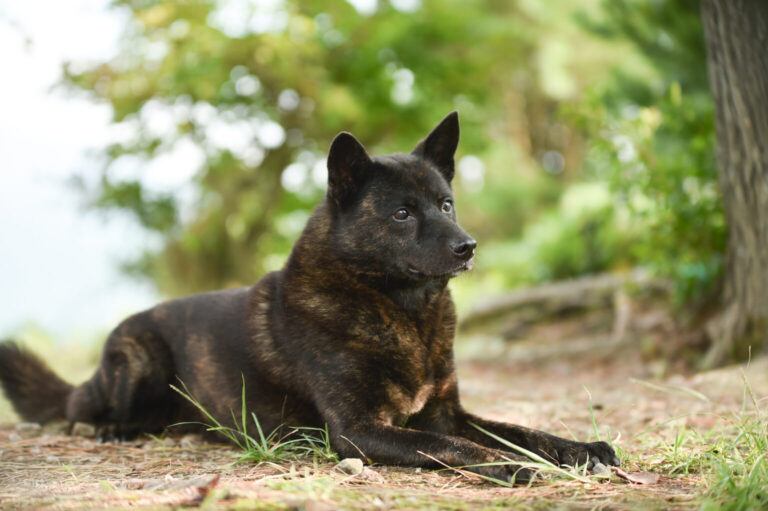
Their facial expressions radiate both a wild allure and intelligence.
The movement of their tail, akin to the traditional Japanese fan, serves as a crucial tool for expressing emotions.
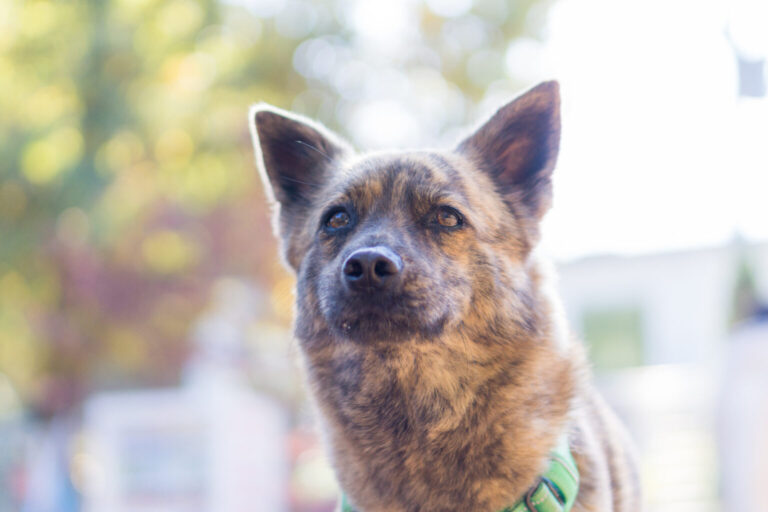
This unique appearance of the Kai Ken has been shaped throughout Japan’s rich history and natural landscapes.
Along with their proud and independent character, they captivate the hearts of many.
Coat Color

The emblematic coat color of the Kai Ken, known as “brindle”, boasts a stunning pattern of red and white stripes against a black base.
This unique design deeply resonates with the Kai Ken’s roots in Japanese tradition and culture, serving as a symbol of the breed’s identity.
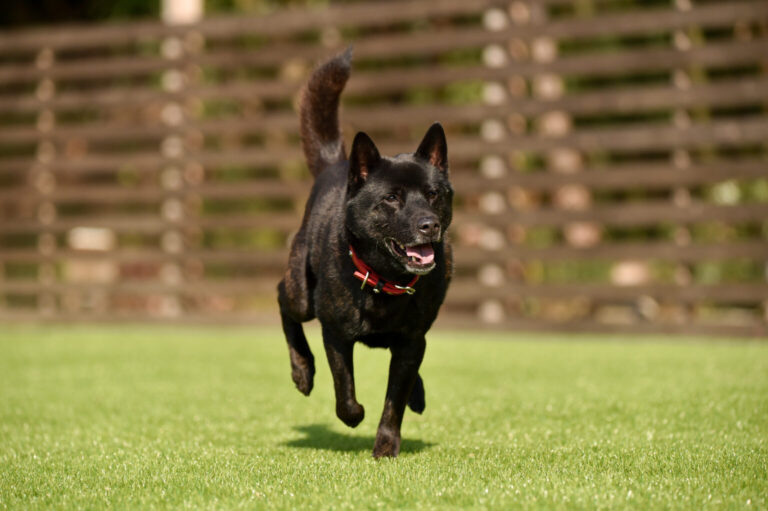
The brindle Kai Ken embodies the beauty and history of Japan, and many Japanese people hold a deep appreciation for its aesthetic and significance.
Coat Type
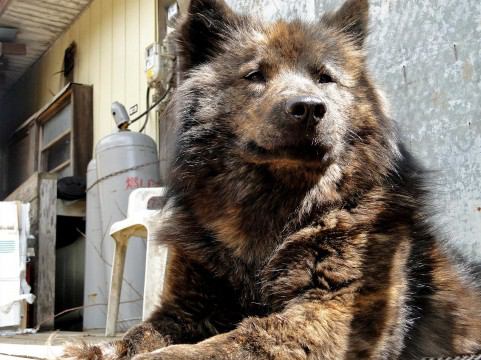
The Kai Ken is a Japanese breed with short, somewhat stiff, straight hair.
This distinct coat reflects their history of hunting in Japan’s rugged mountainous regions. It’s believed that this fur evolved to protect them from the mountainous weather and external elements.

The fur is densely packed, and they also have an undercoat, making them well-suited for colder climates.
However, during Japan’s hot summers, extra care is needed to ensure the Kai Ken’s well-being.
Size
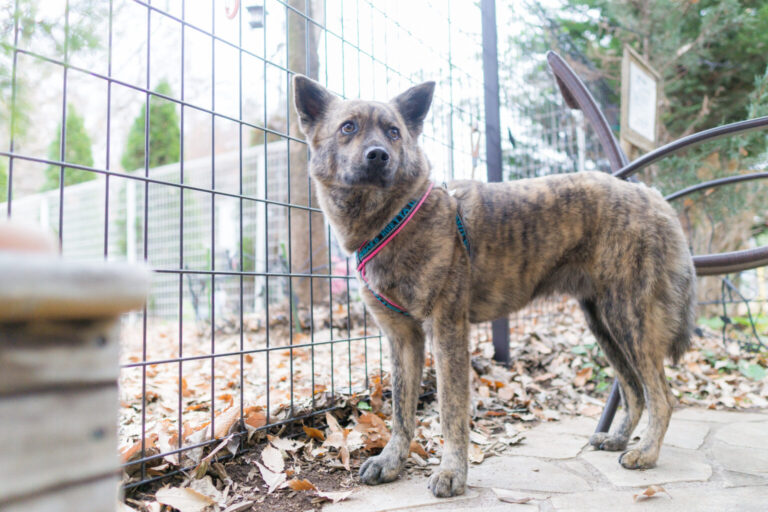
The Kai Ken, one of Japan’s historic dog breeds, boasts a unique physique.
Males stand at a shoulder height of approximately 20.5 inches to 22.8 inches, while females measure around 19.3 inches to 21.7 inches.
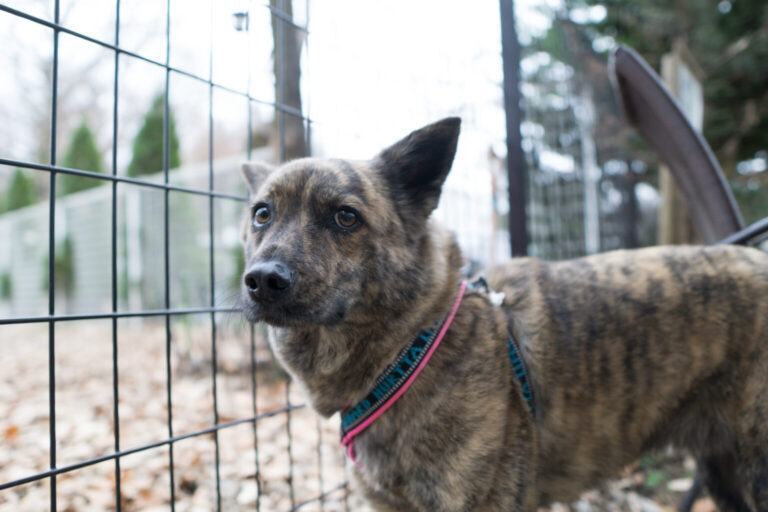
Despite their slender frame, their well-developed muscles and sturdy skeletal structure evoke the strength reminiscent of Japanese samurai.
Notably, their deep chest and tight waist symbolize their beautifully balanced figure.
Weight
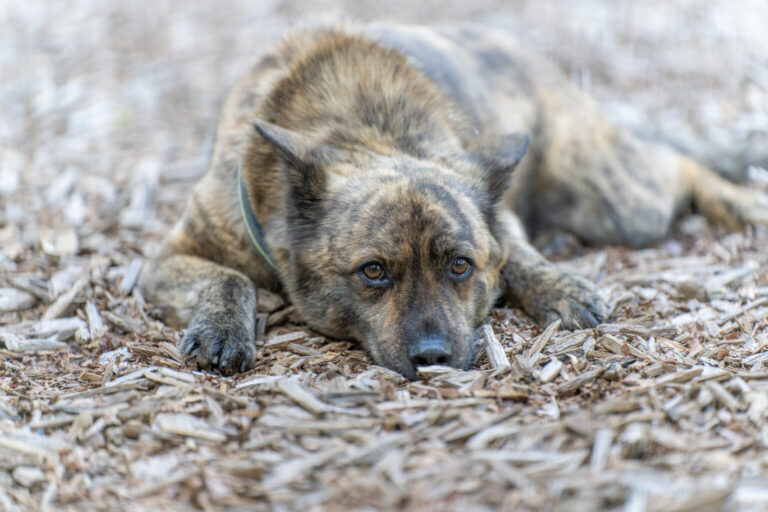
Male Kai Ken typically weigh between 44 and 55 pounds, while females tend to be a bit lighter, weighing approximately 35 to 44 pounds.
Resembling the strength and resilience of Japanese samurai, the Kai Ken, a traditional Japanese breed, has a muscular build and sturdy frame.
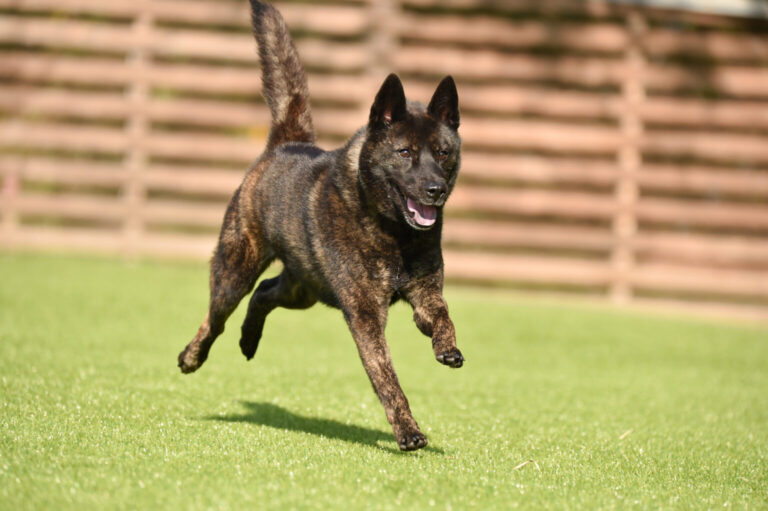
Their weight range is a testament to their historical role as hunting and guard dogs.
As pet ownership of the Kai Ken has increased in Japan, rooted in traditional Japanese values, it’s crucial to provide a balanced diet and regular exercise to maintain their optimal weight.
Lifespan
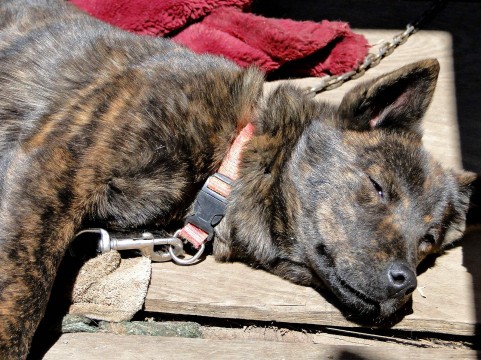
The Kai Ken is a breed Japan takes pride in, boasting an average lifespan of 12 to 16 years.
For a medium-sized dog, they indeed live long lives. Thanks to Japan’s unique approach to preserving the dog’s role as a traditional hunting breed, which avoids inbreeding, they tend to have fewer genetic health issues.
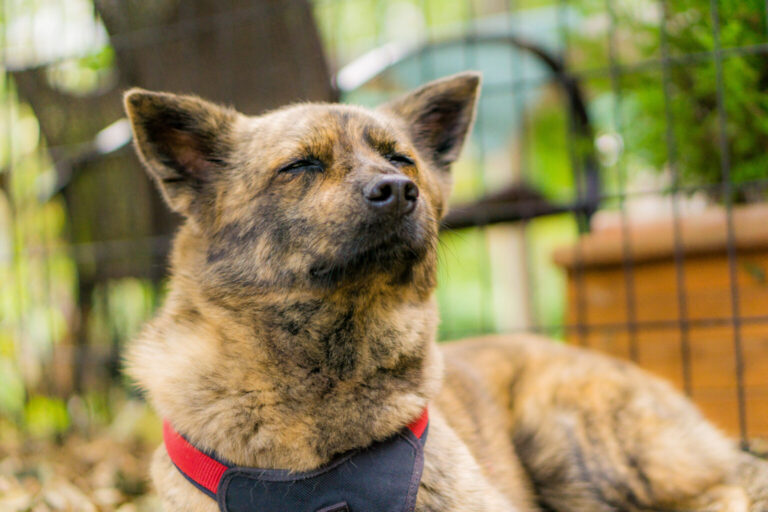
Of course, individual differences among dogs and their upbringing can vary the lifespan, so please consider this as a general guideline.
Trainavility
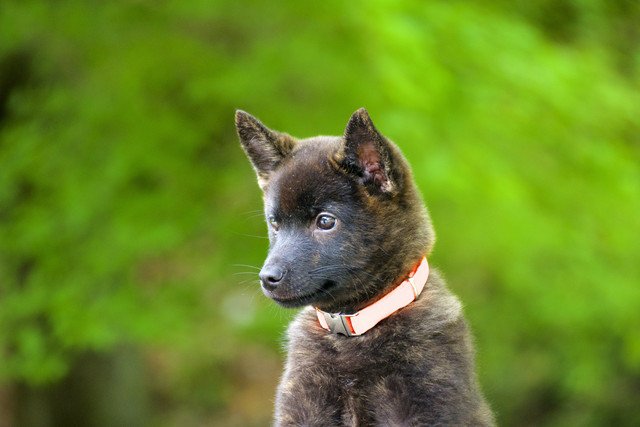
The Kai Ken, with its inherent intelligence, requires consistent leadership.
In line with Japanese training philosophies, consistency and balance are emphasized.
When the dog misbehaves, it’s crucial to discern the right moment and intensity for reprimand.
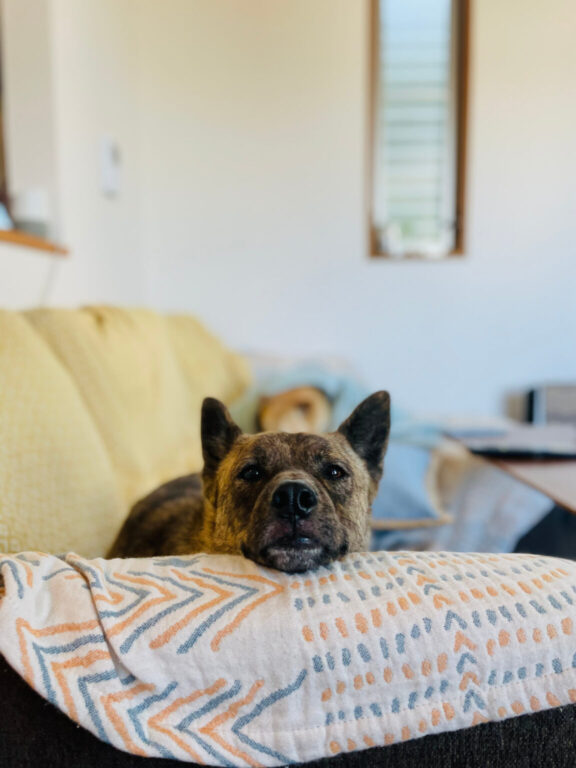
Yet, it’s not just about being strict.
When the dog behaves well, it’s encouraged, following traditional Japanese thoughtfulness, to lavish it with praise.
Exercise
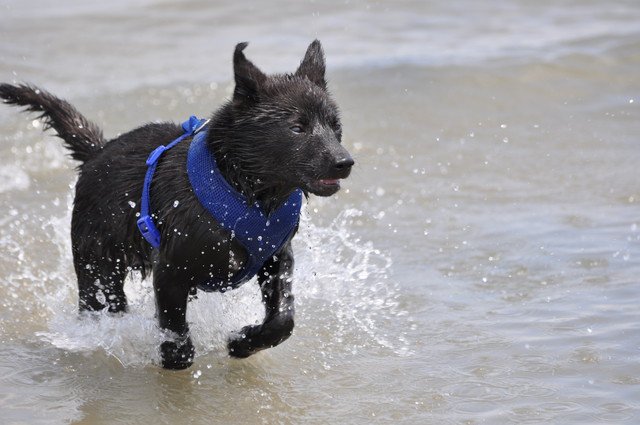
The Kai Ken has its roots in Japan’s hunting traditions. Due to this, they have a robust energy that goes beyond daily walks.
By incorporating activities in dog parks and riverside play, harmonizing with Japan’s nature, their vigor can be constructively channeled.

Understanding and healthily channeling the Kai Ken’s dynamic energy is a vital role for its owner.
Feeding
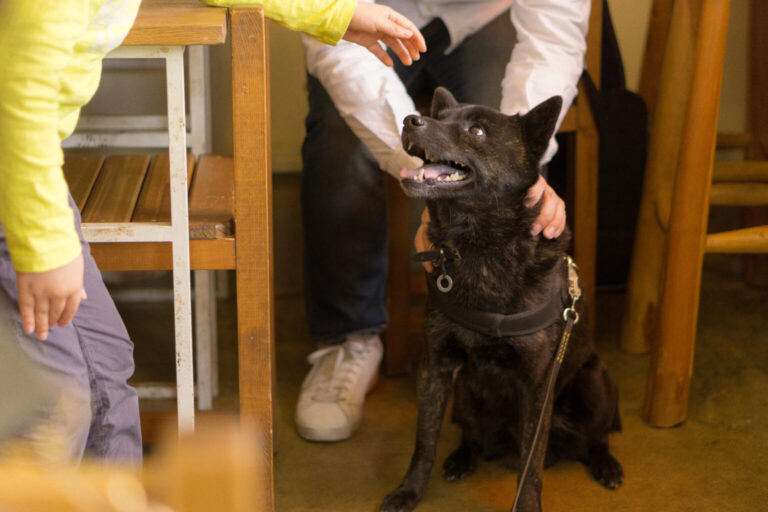
Japanese pet culture places a deep emphasis on the health and welfare of dogs.
For the energetic and muscular Kai Ken, a diet rich in protein is essential. However, following Japan’s traditional approach to balanced care, excessive calories and fats are moderated.
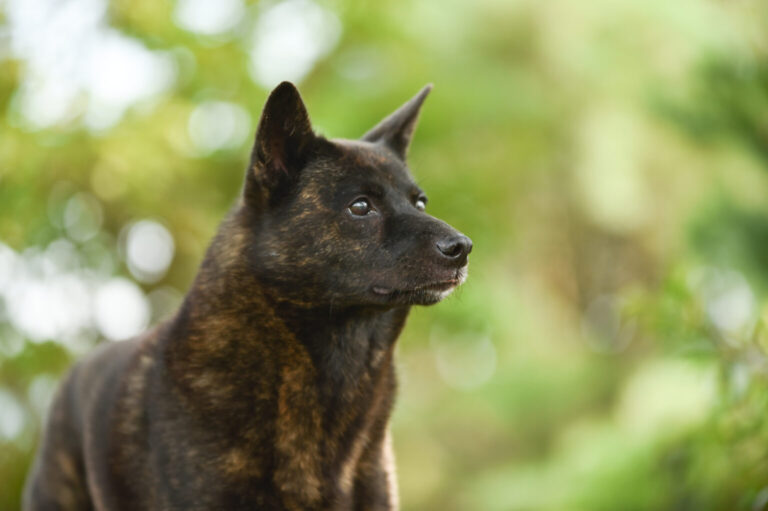
Furthermore, there’s a focus on vitamins and minerals to address specific health concerns of the Kai Ken.
In Japan, daily dietary adjustments are made considering the dog’s lifestyle and health condition. And should any irregularities be noticed, it’s typical to promptly review the diet or seek expert advice.
Temperament
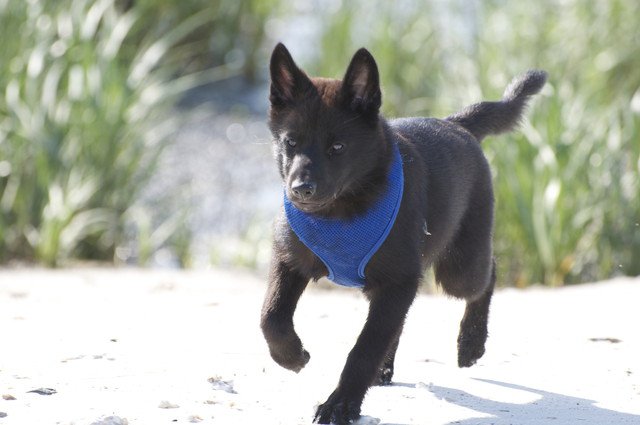
The Kai Ken, deeply rooted in Japanese history, is renowned for its unwavering loyalty to its owner.
This unique trait is aptly encapsulated by the phrase “一代一主” (Ichidai-Isshu), embodying traditional Japanese values, which signifies a Kai Ken’s lifelong devotion to a single master.
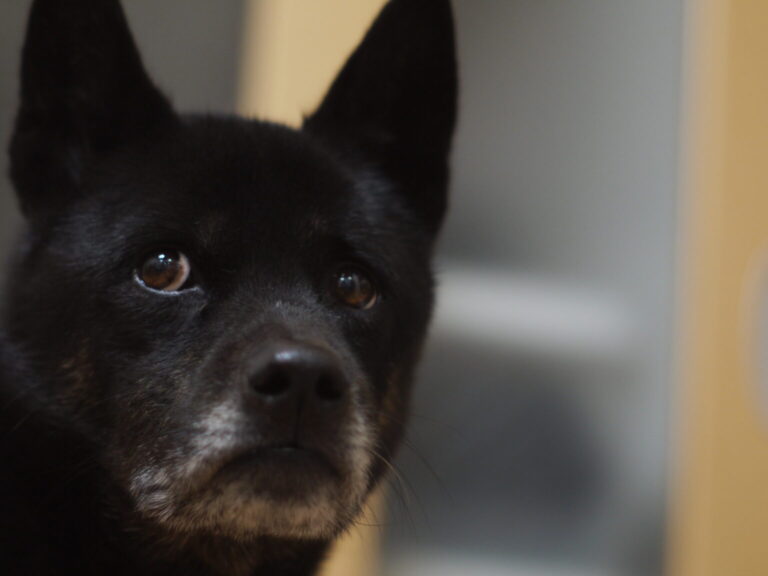
While the roles of these dogs have diversified over time, the bond between the Japanese sensibility and the Kai Ken remains a deeply ingrained cultural legacy.
History
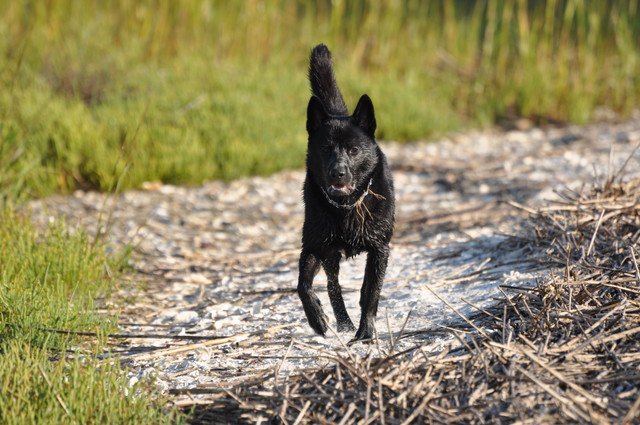
The Kai Ken is a dog breed deeply intertwined with Japan’s rich history and culture.
Believed to have existed since ancient times, this breed was nurtured in the rugged mountainous regions of Yamanashi Prefecture, serving as a hunting dog. Its distinct tiger-striped coat has also earned it the title “Kai Tiger Dog.”
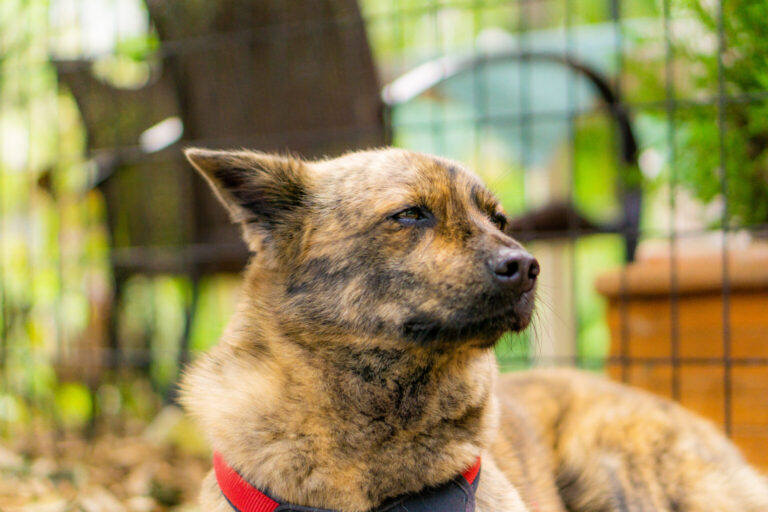
Thanks to the Kai Ken’s strong group mentality and aversion to breeding with other dog types, it has maintained its pure lineage. Given its brave nature and significant role in Japanese hunting traditions, it has long been revered.
In recognition of its cultural and natural importance, it was designated a national natural monument in 1934. Organizations like the “Kai Nihon Ken Preservation Association” were formed, ensuring the protection and continuation of the Kai Ken legacy.
Grooming
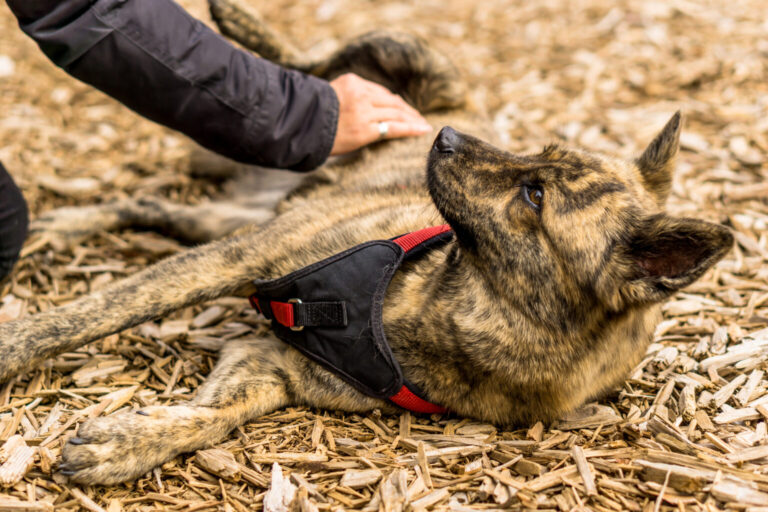
The Kai Ken boasts a short double coat, and reflecting Japan’s traditional simplicity in lifestyle, it requires minimal grooming.

Basic care through regular brushing is sufficient, making its maintenance easier compared to breeds like the Shiba Inu.
Health
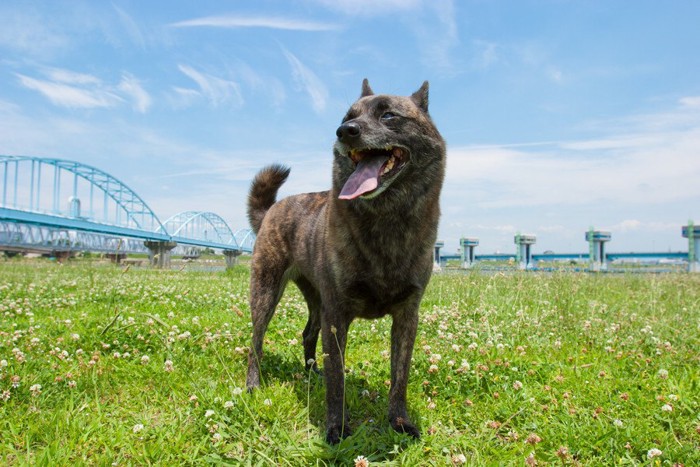
One distinguishing feature of the Kai Ken is its profuse ear hair, making it susceptible to a condition called otitis externa.
While droopy-eared breeds are commonly associated with this condition, the Kai Ken, a proud representative of erect-eared breeds from Japan, also faces this health risk.

In Japan, the health of pets underscores their cherished status as family members.
If a Kai Ken frequently scratches its ears or shakes its head, it’s recommended to promptly visit a veterinarian.

